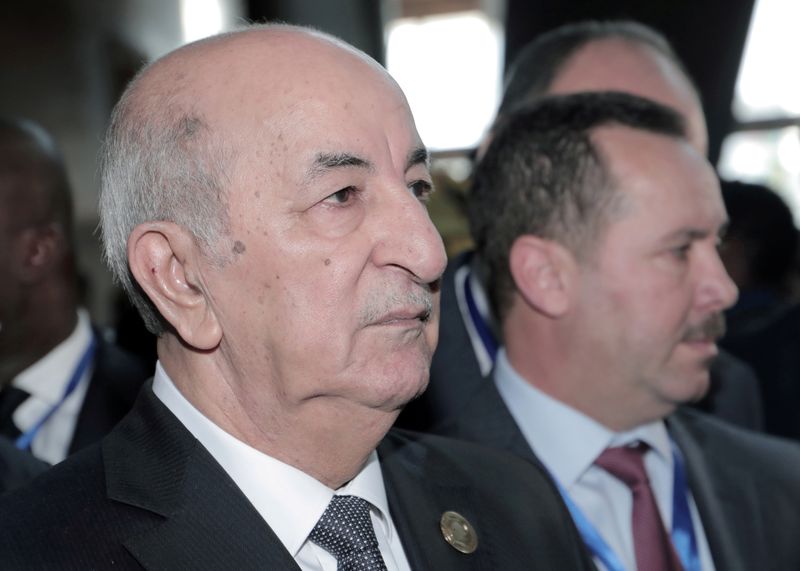ALGIERS (Reuters) – Oil and gas exporter Algeria plans to develop other natural resources including uranium, gold and phosphate with the help of foreign investors after the end of the health crisis caused by the novel coronavirus, President Abdelmadjid Tebboune said on Friday.
The North African country’s economy still relies heavily on energy earnings despite promises in previous years to carry out reforms and develop the non-hydrocarbon sector.
A sharp fall in oil and gas revenue in recent years has deepened the country’s financial problems, widening the budget and trade deficits.
The coronavirus outbreak has worsened the situation with energy earnings dropping further, forcing the government to cut spending and planned investment for 2020.
“The novel coronavirus has frozen several plans and projects. But these plans will be launched after overcoming the health crisis,” Tebboune said on state television.
“Several resources are still untapped. The list includes for example uranium, gold and phosphate. We are ready to develop them with foreign partners.”
A large proportion of Algeria’s energy export revenue is used to pay for imports of goods including food with a bill estimated annually at $45 billion.
“We are determined to develop our agriculture and reduce significantly the value of purchases from abroad,” Tebboune said.
Elected in December last year after mass protests demanding political and economic reforms and the removal of the ruling elite, Tebboune has vowed to open up the economy and amend the constitution to give a greater role to parliament.
But the demonstrations, which forced former president Abdelaziz Bouteflika to resign in April last year and drop a plan to seek a fifth term in office, have continued as many protesters see Tebboune as part of the old guard.
The protests were banned earlier this year as part of government measures to try to limit the spread of the novel coronavirus.
“A political change will take place and strong institutions will be created,” Tebboune said, referring to demands by the protest movement known as Hirak.
The government has decided to postpone loan payments for state and private firms financially hit by the novel coronavirus, and Tebboune said more measures would be taken to benefit companies and the self-employed.
“Losses of firms are being assessed. We are ready to provide financial support. Even self-employed people such as taxi drivers and hairdressers will be helped,” he said.
(Reporting by Hamid Ould Ahmed; Editing by Daniel Wallis)





















